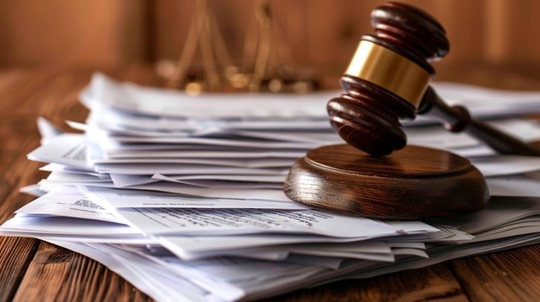In high-net-worth families and business-owning households, trust and estate planning is not just about legacy—it is about control, continuity, and clarity. But what happens when something goes wrong, such as when an estate receives property that rightfully belongs to a trust?
This issue, though often overlooked, can derail even the most well-crafted estate plan—and lead to litigation involving significant assets, such as business equity, investment accounts, or income-producing property.
The Problem: Assets Meant for a Trust End Up in the Estate
Trusts and estates serve different purposes. A trust typically offers control and protection for beneficiaries—especially when business interests or generational wealth are involved. A trust typically is planned for and controlled. An estate, on the other hand, is intended to finalize a decedent’s affairs, subject to probate procedures, and some issues may be unanticipated and the estate must be administered under the situation in which it finds itself at the that time.
Often times, a trust pre-exists an estate or is otherwise integrated with an estate plan. When a person passes away, that death may trigger certain rights to assets under the trust or the estate. But other times, the estate executor is simply unclear about what property enjoyed by the decedent belonged to the trust and which property belonged directly to the decedent, making it likely estate property at the time of death. Or certain property of decedent’s is supposed to go to a trust upon the death, but does not make it to the trust.
Mistakes happen. Property intended for a trust might be titled incorrectly, deposited into an estate account, or retained by an executor who fails to recognize the trust’s superior claim. When that occurs, legal intervention may be required to correct the error.
The Legal Fix: Compelling Return of Trust Assets
New York law provides clear remedies when trust property ends up in the wrong hands:
- Compelling the return of property: Under the Surrogate’s Court Procedure Act (SCPA) § 2102, a party can bring a proceeding to compel the estate’s fiduciary to return specific property or, if that property is no longer available, to pay its value to the trust.
- Court-ordered transfers: Courts have the authority to issue orders directing executors to transfer misallocated funds or assets from the estate to the appropriate trust. This often includes not just the principal but any income the property generated while under estate control.
- Fiduciary accountability: If an executor or trustee fails to protect trust assets or uses them improperly—for example, by commingling funds, delaying transfers, or making unauthorized investments—they may be held personally liable. Courts can order the fiduciary to restore the trust property and compensate for any losses.
The Fiduciary’s Duty: The Prudent Investor Standard
Trustees in New York are bound by the Prudent Investor Act (EPTL § 11-2.3). This statute requires trustees to manage and invest trust assets with care, skill, and caution, keeping in mind the goals of the trust and the needs of its beneficiaries.
When a trustee allows trust property to remain improperly in an estate—or fails to act swiftly to recover it—he or she may violate this fiduciary duty. At best, this results in loss of trust; at worst, it triggers litigation and potential removal.
Consequences of Misconduct: Removal and Sanctions
Surrogate’s Court Procedure Act § 719 allows the court to suspend, modify, or revoke an executor’s or trustee’s authority without a formal petition if they have:
- Commingled trust funds with personal or estate assets
- Improperly managed trust or estate property
- Become ineligible or disqualified to serve
This is a powerful protection for beneficiaries and a warning to fiduciaries: mishandling trust property is not a minor error; it is a serious breach of duty.
Why This Matters
If you or your family relies on a trust to protect business assets, maintain privacy, or manage long-term wealth, the mishandling of trust property can have significant consequences. It can disrupt estate plans, harm beneficiaries, and delay asset distribution—especially in cases involving substantial income, equity, or business holdings.
Whether you are a trustee, executor, business owner, or beneficiary, understanding these legal boundaries is important to avoiding disputes—or winning them.
How We Help
Our litigation team represents high-net-worth individuals, families, and business owners in complex trust and estate disputes. When things go wrong—and when significant assets are at stake—we step in to resolve the matter swiftly and strategically.
If you believe trust property has been wrongfully withheld or mismanaged by an estate, we can help recover what is rightfully yours.
We can help you in Albany, Buffalo, Rochester, New York City, and everywhere in between.
You may learn more about us and how we operate by visiting these pages: About Us and What Sets Us Apart.
To learn more about these topics, check out our Legalities & Realities® Podcast and other related blog posts:
- When a Fiduciary Fails: How SCPA § 2102 Protects Your Interests in Estates and Trusts;
- The Prudent Investor Rule in New York: Fiduciaries Need to Know, Particularly In Trust & Estate Disputes;
- Was Your Loved One Manipulated? When is a Will the Result of Undue Influence and How to Spot it;
- 5 Reasons Why Trust and Estate Litigation Attorneys Are Essential for Resolving Trust or Estate Disputes;
- Understanding In Terrorem Clauses and How to Avoid Costly Mistakes; and
- When Fiduciaries Fail: Understanding Suspension and Removal in Trust and Estate Disputes
This blog post is for informational purposes only and does not constitute legal advice. For specific legal counsel, please contact our office directly.

